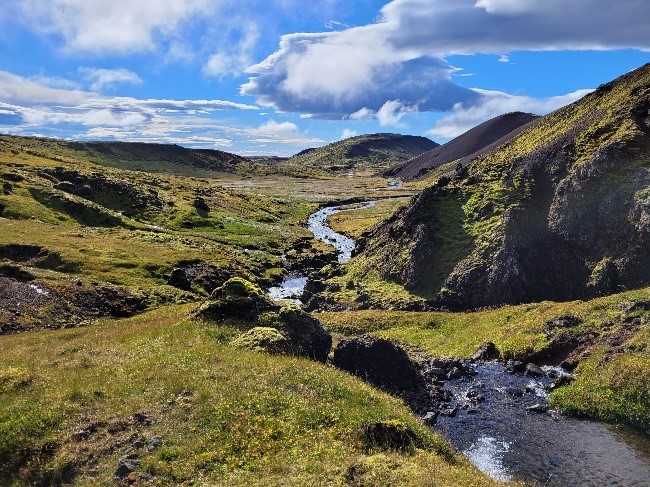IHCantabria participated in a study that has revealed that long-term exposure to environmental temperature attenuates the thermal sensitivity of salmonids
This study provides a solid basis for understanding how salmonids respond to long-term exposure to environmental temperature, opening a path toward more accurate models for predicting and mitigating environmental impacts, including climate change.
An international study has unveiled key findings on how exposure time to different temperature regimes affects the metabolism of salmonids. This finding challenges some conventional notions about how adaptive responses, including acclimation and thermal adaptation, might modulate the response in these fish to different temperature regimes. Their results are reported in a scientific paper recently published in the prestigious journal Nature Communications.
Metabolism, the biological processing of energy and matter, varies with body temperature and size. The effects of temperature on metabolism are usually studied using short-term exposures (hours to days), which overlooks the ability of organisms to modulate their metabolism after longer-term exposure (years to multi-generational). This is how Alexia M. Gonzalez-Ferreras, the first author of this article, explains the characteristics and results of a study that required conducting trials in the same streams where the salmonids were previously captured (in situ) and trials in which fish were transplanted between streams with different temperatures to differentiate the effects of exposure time to a given temperature regime. This study includes data from trials conducted in Iceland, the United Kingdom and northern Spain, specifically in rivers of the Pas and Deva basins.
Traditionally, the effect of temperature on the metabolism of individuals is studied through short-term exposures, but this new approach considers the ability of organisms to regulate their metabolism after longer exposure to the target temperature regime. Key results of the study show a clear temperature dependence in salmonid metabolism after transplantation between streams with different temperatures, but not for in situ trials, indicating that longer-term exposure may attenuate their thermal sensitivity. In addition, a bioenergetics model used in the study was able to more accurately predict the presence of fish in warmer streams when considering long-term exposure than when using short-term exposure.
An international team of researchers reported the results of this study in the journal Nature Communications, in an article entitled “Chronic exposure to environmental temperature attenuates the thermal sensitivity of salmonids”. Of its 12 co-authors, three are researchers from the Continental Ecosystems Group of the Environmental Hydraulics Institute of the University of Cantabria(IHCantabria); in addition to Alexia M. González-Ferreras, the other co-authors from this institute are Jose Barquin Ortiz and Francisco J. Peñas Silva.
According to the results of the study, research that has limited itself to simple estimates based on the metabolic theory of ecology or estimates obtained in laboratory tests could be of questionable validity when predicting the consequences of climate change on ecosystems, since they do not take into account the previous exposure times of the species. Therefore, one of the recommendations is that, in future studies, the potential for acclimatization and thermal adaptation should be incorporated when forecasting the consequences of global warming on ecosystems, to take into account its impact on the response of species. The scientists who developed the study highlight the need for further in situ research to better understand thermal sensitivity under natural conditions and to determine the relative extent of evolutionary adaptation versus the ability of salmonids to regulate their metabolic response. They also highlight the need for studies to determine whether adaptation or acclimatization is keeping pace with the effects of global climate change or whether its extent is sufficient to mitigate the effects of global climate change. Incorporating acclimation and thermal adaptation into predictive models could help explain some results of previous studies considered ecological surprises and generate more appropriate conservation actions for salmonids.
This study marks a milestone in understanding how organisms can adjust their metabolic responses when considering the timing of exposure to different temperature regimes, providing a pathway to more accurate models for predicting and mitigating environmental impacts.
The full content of the article can be accessed through this link.

Photo of a field test, showing the cameras used in this study.

Hengill geothermal basin (Iceland), where part of the study was carried out.

Deva basin (Spain), where part of the study was carried out.


